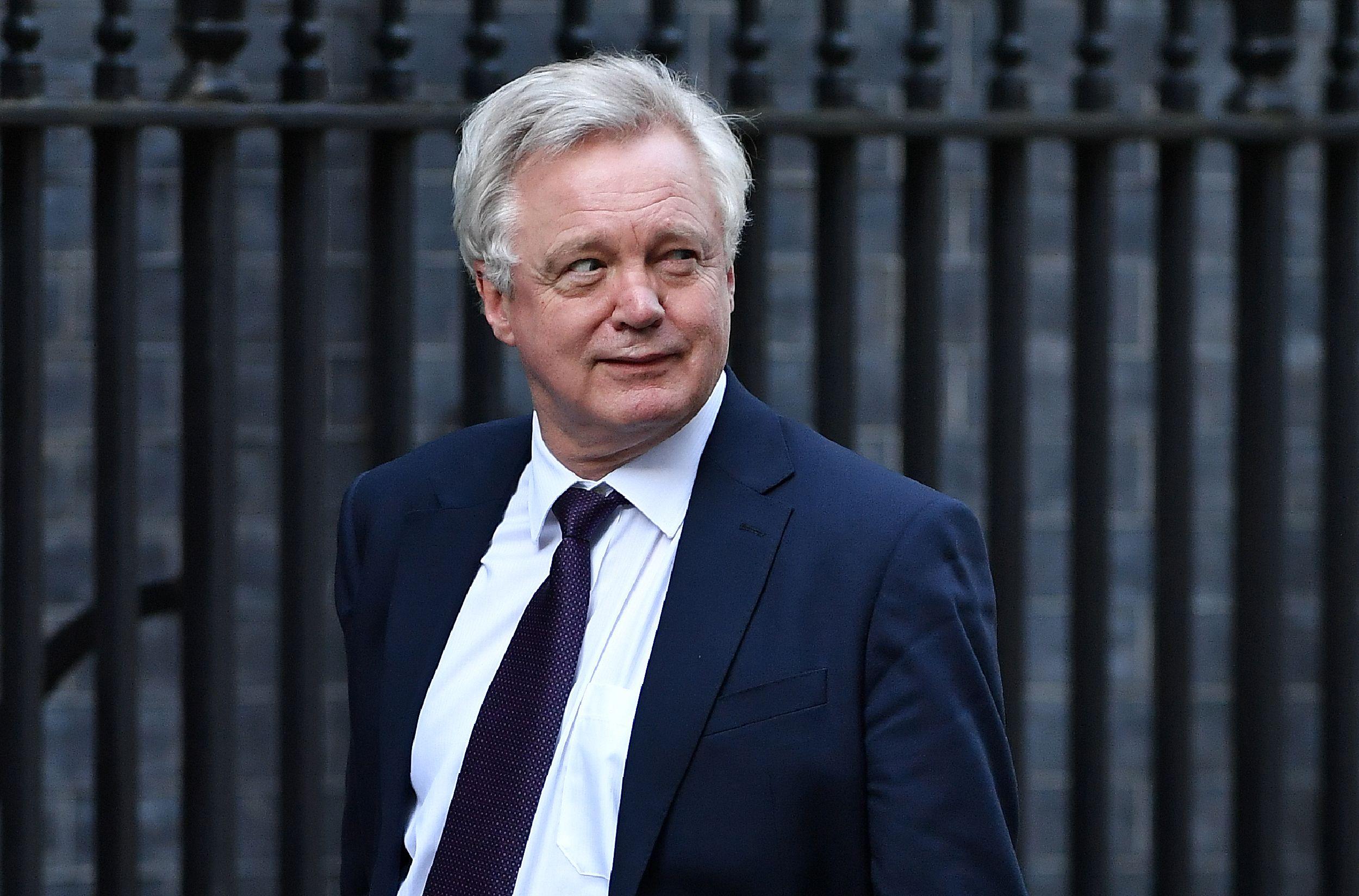EU laws will still affect British court decisions after Brexit, David Davis admits
Mr Davis also confirmed ministers will have the use of so-called 'Henry VIII' powers

Your support helps us to tell the story
From reproductive rights to climate change to Big Tech, The Independent is on the ground when the story is developing. Whether it's investigating the financials of Elon Musk's pro-Trump PAC or producing our latest documentary, 'The A Word', which shines a light on the American women fighting for reproductive rights, we know how important it is to parse out the facts from the messaging.
At such a critical moment in US history, we need reporters on the ground. Your donation allows us to keep sending journalists to speak to both sides of the story.
The Independent is trusted by Americans across the entire political spectrum. And unlike many other quality news outlets, we choose not to lock Americans out of our reporting and analysis with paywalls. We believe quality journalism should be available to everyone, paid for by those who can afford it.
Your support makes all the difference.David Davis has admitted that European case law will continue to have a bearing in British court decisions even after Brexit.
The cabinet minister told the House of Commons it would be necessary for British judges to take account of decisions taken in the European Court of Justice in order to ensure continuity.
The Brexit Secretary's admission came as he published a White Paper into his Great Repeal Bill, which also confirmed ministers will get to use so called "Henry VIII" powers to tweak bits of EU law brought on to the British statute book without fully consulting Parliament.
Speaking in the Commons just 24 hours after Theresa May invoked Article 50 – activating Britain's two-year countdown for exiting the EU – Mr Davis added that there are three key elements of the White Paper, repealing the 1972 European Communities Act, converting all EU law into UK law, and giving ministers the ability to tweak laws they wish to get rid of.
He told MPs in the Commons that the Bill is integral to a “smooth and orderly Brexit” and will ensure the Government delivers on its promise to restore legal supremacy.
Confirming the on-going influence of European case law, Mr Davis claimed it would not encroach upon Prime Minister Theresa May's promise to end the jurisdiction of the Court in the UK.
He said: "For as long as EU derived law remains on the UK statute book, it is essential there is a common understanding of what that law means.
"The Government believes this is best achieved by providing continuity in how that law is interpreted before and after exit day.
"To maximise certainty therefore, the bill will provide that any question as to the meaning EU law which has been converted to UK law, will be determined in the UK courts by reference to European Court of Justice case law as it exists on the day we leave the European Union.”
In a move designed to quell concern over the use of so-called Henry VIII powers to pass up to 1,000 pieces of secondary legislation without close parliamentary scrutiny, Mr Davis said any powers created in this way would be "time limited" and "Parliament will need to be satisfied that the procedures are appropriate".
“We have been clear that we want a smooth and orderly exit, and the Great Repeal Bill is integral to that approach,” he added.
"It will provide clarity and certainty for businesses, workers and consumers across the United Kingdom on the day we leave the EU.
"It will mean that as we exit the EU and seek a new deep and special partnership with the European Union, we will be doing so from the position where we have the same standards and rules.
Responding to the statement Keir Starmer, the Shadow Brexit Secretary, said no one underestimates the task of converting EU law into domestic law. But, he added, MPs needed assurances that ministers would face down Eurosceptics tempted to water down rights before they are placed on the UK statue book.
Speaking in the Commons Sir Keir added: "There should be no change to rights and protections without primary legislation - that is a starting and basic principle, and the same goes for policy.
"I add this, when we see the Bill there should be no power to change rights and obligations and protections in the future by delegated legislation. I ask (Mr Davis) to provide assurance on those basic principles this morning, and I ask him to look again at safeguards for the delegated legislation procedures that are proposed.
"This morning we need an assurance from (Mr Davis) that he will face down those on his own side who will not be able to resist the temptation to water these rights and protections down before they're even put into this Bill."
Join our commenting forum
Join thought-provoking conversations, follow other Independent readers and see their replies
Comments